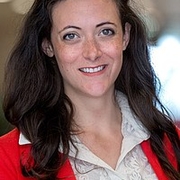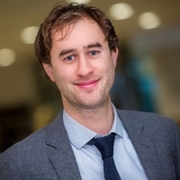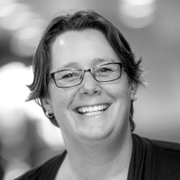- Level Foundation
- Duration 15 hours
- Course by Erasmus University Rotterdam
-
Offered by

About
Extreme weather events, wars, famine and environmental destruction are just a few of the wicked problems faced by humanity. That’s why in 2015 the United Nations adopted the 2030 Agenda for Sustainable Development. This agenda includes 17 Sustainable Development Goals (SDGs) that target the big challenges such as how to eliminate poverty, how to protect the environment and how to bring about peace. Every member state committed to achieving these goals by 2030. What can businesses do to counter climate change and create a sustainable business culture? Why is this relevant for business anyway? Explore how business can contribute to a better future for people AND the planet without giving up profits. This course has been developed by Rotterdam School of Management at Erasmus University (RSM). It focuses on the role of businesses in achieving the SDGs. You will gain insights from leaders of international companies and academics in business and management who will guide you through the issue of how businesses can contribute to the SDGs. The course received a 'MOOC Award of Excellence' by the Sustainable Development Solutions Network and the SDG Academy in September 2019 (https://www.unsdsn.org/2019-sdsn-awards-of-excellence-winners-announced) After completing this course you will: • know what the SDGs are, why they are important and how each individual can be an agent for positive change in the world; • understand the role of business in the transition to sustainable development to create a prosperous future for all; • be able to identify interconnectedness of the SDGs and the challenges behind solving them; • know how management insights can contribute to the SDGs; • be able to evaluate the effectiveness of current business strategies in contributing to the SDGs; • develop a positive, critical, aware and courageous attitude towards the SDGs. The course consists of seven units, each focusing on several aspects of sustainable development and taking one week to complete. You will study by watching videos, reading literature and by engaging in other activities such as weekly challenges. Assignments will consist of quizzes, discussions with your fellow students, and challenges to implement in your daily life. Are you ready to find out how you can be an agent for positive change? Register now!Modules
Week 1: Introduction
3
Videos
- Welcome, general introduction to the MOOC and practicalities (Lauren Verheijen)
- A Systematic Hierarchy of the SDGs and the MOOC structure (Lauren Verheijen)
- Sustainable development: a wicked opportunity for business? (Professor Rob van Tulder)
1
Readings
- Week 1: Introduction to the Sustainable Development Goals
Week 1: The Hummingbird story and positive change
1
Discussions
- Your footprint
1
Videos
- Positive change starts with I WILL – the hummingbird (Eva Rood)
2
Readings
- Introduction to the Hummingbird Challenges
- Hummingbird Challenge 1: Calculate your footprint
Week 1: You!
2
Discussions
- Introduce yourself
- Your own learning goals
Week 1: Conclusion
1
Assignment
- What do you know about the SDGs?
1
Videos
- Summary of Week 1 (Lauren Verheijen)
1
Readings
- Recommended readings and learning materials
Week 2: Introduction
1
Videos
- Introduction to the Biosphere SDGs, with a focus on SDG 13 (Lauren Verheijen)
1
Readings
- Introduction to the Biosphere
Week 2: Climate Action (SDG 13)
1
Discussions
- The plastic challenge
2
Videos
- The business case for Climate Action (Dr Steve Kennedy)
- Floor covering company learns from nature to bring positive change (Geanne van Arkel, Interface)
1
Readings
- Hummingbird Challenge 2: Reduce your footprint
Week 2: Life below Water (SDG 14) and Life on Land (SDG 15)
1
Assignment
- What is the progress on SDG 15?
6
Videos
- Life below Water (SDG 14) and Life on Land (SDG 15) (Lauren Verheijen)
- How business can mitigate externalities that impact oceans and contribute to SDG 14: Life below Water (Dr Mallory Flowers)
- The WWF/Rabobank partnership to work towards sustainable salmon production in Chile (Brenda de Swart, Cristina Torres and other stakeholders involved, WWF and Rabobank Chile).
- How to design and enforce effective sustainability standards to contribute to SDG 15: Life on Land (Dr Frank Wijen)
- The B Corps Assessment for companies that balance purpose and profit (Marcello Palazzi, B Corporations)
- How business schools can contribute to ecosystem restoration (Willem Ferwerda, Commonland)
Week 2: Clean Water and Sanitation (SDG 6)
3
Videos
- Clean Water and Sanitation – SDG 6 (Lauren Verheijen)
- How the finance industry can drive sustainable solutions (Professor Dirk Schoenmaker)
- Achieving responsible long-term returns with global investments (Frank Roeters van Lennep, PGGM)
1
Readings
- Challenges related to water
Week 2: Conclusion
1
Assignment
- What do you know about SDGs 6, 13, 14, and 15?
1
Videos
- Summary of Week 2 (Lauren Verheijen)
1
Readings
- Recommended readings and learning materials
Week 3: Introduction
2
Videos
- Introduction to Society I (Lauren Verheijen)
- Sustainable development begins with respecting human rights (Professor Cees van Dam)
1
Readings
- Introduction to Society I
Week 3: No Poverty (SDG 1)
1
Discussions
- Your own clothes
2
Videos
- How can businesses contribute to human rights and to SDG 1: No Poverty? (Heleen Tiemersma)
- Tony’s Chocolonely, working towards a slave-free chocolate industry and contributing to SDG 1: No Poverty (Arjen Boekhold)
1
Readings
- Hummingbird Challenge 3: Who made your clothes?
Week 3: Zero Hunger (SDG 2) and Good Health & Well-being (SDG 3)
1
Discussions
- Connections between SDG 1 and SDG 2
5
Videos
- SDG 2: Zero Hunger and SDG 3: Good Health and Well-being for People (Lauren Verheijen)
- The role of finance in meeting SDG 2: Zero Hunger (Dr Marta Szymanowska)
- Driving sustainable development and tackling SDG 2: Zero Hunger through finance – FMO the Dutch Development Bank (Pieternel Boogaard, Joanita Wartemberg, and Toghrul Khalilli)
- How value-based healthcare contributes to SDG 3: Good Health and Well-being for People (Professor Erik van Raaij)
- A business case for value-based care of patients with Type 1 diabetes (Dr Henk-Jan Aanstoot, Diabeter)
Week 3: Affordable and Clean Energy (SDG 7)
3
Videos
- Introducing SDG 7: Affordable and Clean Energy (Lauren Verheijen)
- Reaching SDG 7: Affordable and Clean Energy (Dr Yashar Ghiassi-Farrokhfal)
- How the Port of Rotterdam is contributing to SDG 7: Affordable and Clean Energy (Caroline Kroes)
Week 3: Conclusion
1
Assignment
- What do you know about SDGs 1, 2, 3, and 7?
1
Videos
- Summary of Week 3 (Lauren Verheijen)
1
Readings
- Recommended readings and learning materials
Week 4: Introduction
1
Videos
- Introduction to Society II (Lauren Verheijen)
1
Readings
- Introduction to Society II
Week 4: Sustainable Cities and Communities (SDG 11)
1
Assignment
- Case study: Sustainable transportation by bike sharing
1
Discussions
- Applying bicycle-sharing to other sharing platforms
1
Videos
- SDG 11: Sustainable Cities and Communities (Dr Tobias Brandt)
Week 4: Quality Education (SDG 4), Gender Equality (SDG 5), and Reduced Inequalities (SDG 10)
1
Discussions
- Your implicit associations
6
Videos
- Interconnectedness of SDGs 4, 5, 10 (Lauren Verheijen)
- How business can contribute to education and equality (Assistant Professor Samer Abdelnour and Theodor Cătăniciu, Restart Network)
- Introducing goal setting at RSM (Lauren Verheijen)
- Reducing inequality through goal setting (Professor Michaéla Schippers)
- Goal setting to keep students at university and reduce inequality (Professor Steef van de Velde)
- Tackling gender inequality (Professor Dianne Bevelander)
2
Readings
- Your I WILL statement
- Hummingbird challenge 4: Implicit associations
Week 4: Conclusion
1
Assignment
- What do you know about SDGs 4, 5, 10, and 11?
1
Videos
- Summary of Week 4 (Lauren Verheijen)
1
Readings
- Recommended readings and learning materials
Week 5: Introduction
1
Videos
- Introduction to Economy (Lauren Verheijen)
1
Readings
- Introduction to Economy
Week 5: Decent Work and Economic Growth (SDG 8)
2
Videos
- How workplace safety contributes to SDG 8 (Professor René de Koster)
- How CEVA maintains a culture of workplace safety (Bart Beeks)
Week 5: Industry, Innovation and Infrastructure (SDG 9)
2
Videos
- Innovation towards balanced development (Dr Ying Zhang)
- Working towards Sustainable Urban Deltas (Meiny Prins, Priva)
Week 5: Responsible Consumption and Production (SDG 12)
1
Discussions
- Rethink, Refuse, Reuse, Repair, Reduce and Recycle
5
Videos
- Introduction to SDG 12: Responsible Consumption and Production (Lauren Verheijen)
- Developing entrepreneurial business culture to improve sustainability (Dr Ferdinand Jaspers)
- Shifting to a circular economy to support SDG 12 (Harald Tepper, Philips)
- Changing consumers’ consumption choices through language (Dr Anne-Kathrin Klesse)
- Using communication to make consumption more sustainable (Michaël Wilde, Eosta)
2
Readings
- Your power as a consumer
- Hummingbird Challenge 5: Tracing the source of your lunch
Week 5: Conclusion
1
Assignment
- What do you know about SDGs 8, 9, and 12?
1
Videos
- Summary of Week 5 (Lauren Verheijen)
1
Readings
- Recommended readings and learning materials
Week 6: Introduction
1
Videos
- Introduction to the partnership week and SDG 17 (Lauren Verheijen)
1
Readings
- Introduction to Partnerships
Week 6: Partnerships for the goals (SDG 17)
2
Videos
- How can we develop effective, cross-sector partnerships? (Marieke de Wal)
- Succesful partnerships for the goals in practice (Ricardo Bosshard, WWF Chile)
1
Readings
- Corporate involvement in the SDGs
Week 6: Peace, Justice and Strong Institutions (SDG 16)
1
Discussions
- A call for collaboration
3
Videos
- Introduction to SDG 16: Peace, Justice and Strong Institutions (Lauren Verheijen)
- The business case for ensuring safety and security (Professor Gabriele Jacobs)
- Three experts describe the changes and challenges in safety and security (Adriaan van Dorp, ABN AMRO; Dieter Schuermann, Ministry of Interior and Klaus Stullenberg, private security sector)
1
Readings
- Hummingbird Challenge 6: Collaborations and Partnerships
Week 6: Conclusion
1
Assignment
- What do you know about SDGs 16 and 17?
1
Videos
- Summary of Week 6 (Lauren Verheijen)
1
Readings
- Recommended readings and learning materials
Week 7: Introduction
1
Videos
- Introduction to Week 7: Systems thinking (Lauren Verheijen)
1
Readings
- Introduction to Systems thinking
Week 7: Synergies and trade-offs
1
Assignment
- Synergies and Trade-offs
2
Discussions
- Synergies and Trade-offs: Interactions
- System mapping
2
Videos
- Understanding the synergies and trade-offs of the SDGs (Dr Amanda Williams)
- The SDGs as a blueprint for fulfilling a business purpose (Bob Collymore, CEO Safaricom Plc)
2
Readings
- The SDGs in business strategies
- Hummingbird Challenge 7: Map a system and intervene
Week 7: Reflection and next steps
2
Assignment
- Reflect on your learning goals
- What will be your next steps?
2
Videos
- Whatever happened to the forest? (Eva Rood)
- Conclusion of the MOOC (Lauren Verheijen)
3
Readings
- Evaluation of the MOOC
- Get your Positive Change Ambassador badge!
- Recommended readings and learning materials
Auto Summary
Discover how businesses can drive sustainable progress with the course "Driving Business Towards the Sustainable Development Goals." Developed by the prestigious Rotterdam School of Management at Erasmus University, this course delves into the pivotal role businesses play in addressing global challenges like climate change, poverty, and environmental conservation. Guided by experts from leading international companies and distinguished academics, you'll explore the interconnectedness of the 17 Sustainable Development Goals (SDGs) established by the United Nations in 2015. The course, honored with the 'MOOC Award of Excellence' by the Sustainable Development Solutions Network and the SDG Academy, equips you with the knowledge to foster a sustainable business culture without sacrificing profitability. Throughout the seven-week program, you'll engage with a variety of learning materials, including videos, literature, and interactive activities. Each week, you'll tackle assignments such as quizzes, discussions, and practical challenges designed to integrate sustainable practices into your daily life. Ideal for professionals and students in the business and management domain, this foundational course empowers you to become an agent of positive change. By the end of the course, you'll understand the importance of the SDGs, the critical role of businesses in achieving them, and how to critically evaluate and implement effective business strategies. Enroll now on Coursera and embark on a journey to make a meaningful impact on the world. With flexible subscription options, including a Starter plan, you can begin your path towards a prosperous and sustainable future for all.

Michaéla Schippers

Erik van Raaij

Mallory Flowers

Steve Kennedy

Heleen Tiemersma

Dirk Schoenmaker

René de Koster

Ying Zhang

Ferdinand Jaspers

Anne-Kathrin Klesse

Cees van Dam

Dianne Bevelander

Marieke de Wal

Steef van de Velde

Frank Wijen

Eva Rood

Marta Szymanowska

Rob van Tulder

Tobias Brandt

Amanda Williams

Yashar Ghiassi-Farrokhfal

